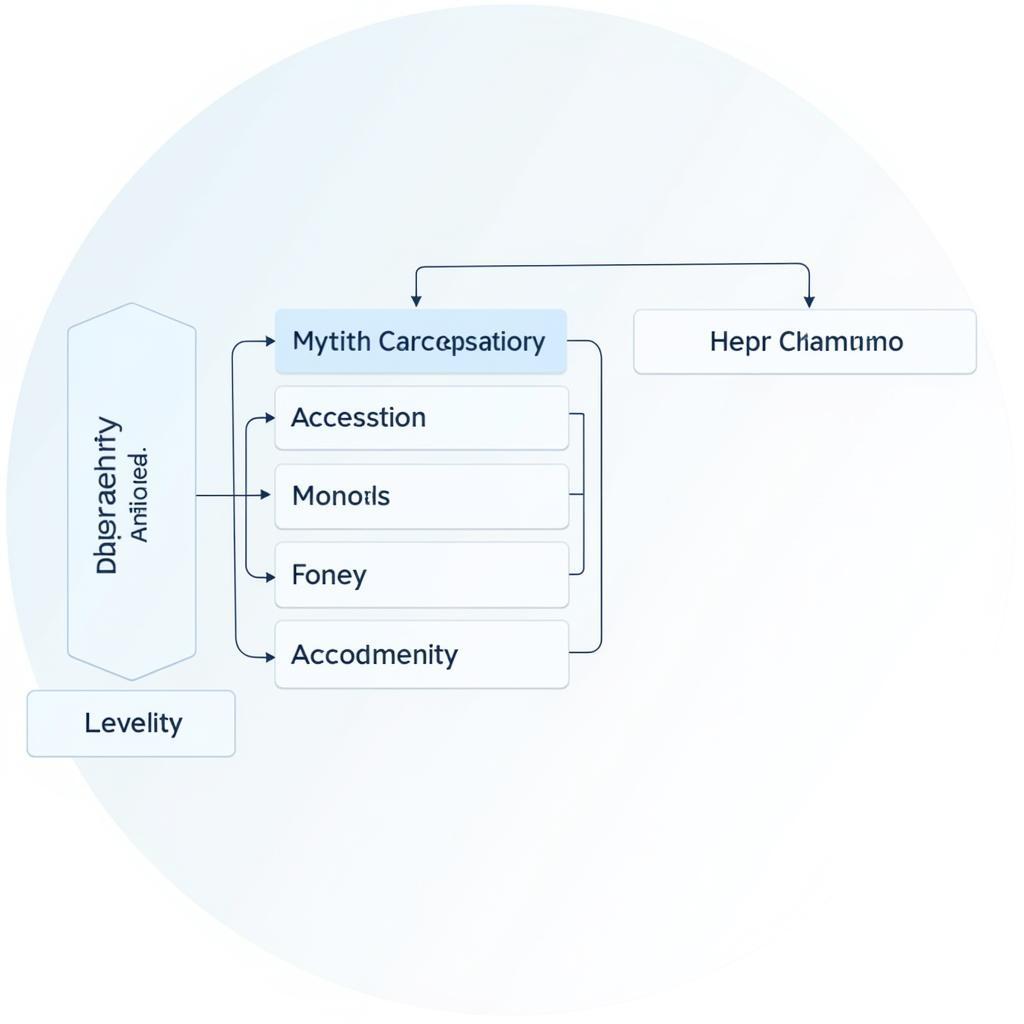The Association of Southeast Asian Nations (ASEAN) plays a crucial role in the political, economic, and socio-cultural landscape of Southeast Asia. Understanding ASEAN aims and purposes is key to grasping its significance and impact on the region and beyond. This article delves into the core objectives and principles driving this dynamic intergovernmental organization.
Delving into the Core ASEAN Aims and Purposes
ASEAN’s foundation rests on a shared vision of peace, stability, and prosperity. The organization’s aims and purposes are multifaceted, encompassing economic cooperation, social progress, cultural development, and regional security. These objectives are intertwined, creating a synergistic approach to regional integration. At its heart, ASEAN strives to foster a community where member states collaborate for mutual benefit and collective growth. The aims and purposes of asean are clearly defined in its founding document, the Bangkok Declaration.
Economic Growth and Integration: A Key ASEAN Aim
ASEAN aims to accelerate economic growth, social progress, and cultural development through joint endeavors. This involves promoting trade, facilitating investment, and fostering economic integration. The ASEAN Economic Community (AEC) stands as a testament to this commitment, creating a single market and production base that enhances competitiveness and attracts foreign direct investment.
What are the Political and Security Aims of ASEAN?
Beyond economic considerations, ASEAN places significant emphasis on political and security cooperation. The organization promotes regional peace and stability by adhering to the principles of non-interference and peaceful dispute settlement. ASEAN also collaborates on issues like counter-terrorism, transnational crime, and disaster management, bolstering regional resilience. The asean aims and purposes encompass maintaining regional peace.
Social Development and Cultural Exchange: Pillars of the ASEAN Vision
ASEAN’s commitment to social progress encompasses improving the quality of life for its citizens. This includes promoting education, healthcare, and social welfare initiatives. Furthermore, ASEAN actively encourages cultural exchange, fostering understanding and appreciation for the diverse cultures within the region. These efforts strengthen regional identity and promote a sense of shared heritage.
How Does ASEAN Promote Regional Cooperation?
ASEAN’s strength lies in its ability to promote regional cooperation and dialogue. Through various platforms and mechanisms, member states engage in regular consultations, negotiations, and joint initiatives. This collaborative approach allows ASEAN to address shared challenges and pursue common goals, ensuring that the region’s voice is heard on the global stage. asas pbb dan asean reinforces the cooperative spirit of the region.
“ASEAN’s success stems from its commitment to inclusivity and consensus-building,” notes Dr. Anya Sharma, a prominent Southeast Asian Studies scholar. “By fostering a spirit of partnership, ASEAN has created a platform where diverse nations can work together for the common good.”
“The economic benefits of ASEAN integration are undeniable,” adds Mr. Ben Lee, a leading economist specializing in Southeast Asia. “The AEC has opened up new markets and opportunities for businesses, driving economic growth and creating jobs across the region.”
In conclusion, the ASEAN aims and purposes are multifaceted, encompassing economic prosperity, political stability, social progress, and cultural development. By fostering regional cooperation and dialogue, ASEAN has become a driving force for positive change in Southeast Asia, striving towards a shared vision of peace, prosperity, and unity. aha asean focuses on the heritage aspect of the cooperation.
FAQ:
- What is the primary goal of ASEAN? To promote regional peace, stability, and prosperity.
- How many member states are there in ASEAN? Ten.
- When was ASEAN established? 1967.
- What is the AEC? The ASEAN Economic Community.
- How does ASEAN promote cultural exchange? Through various programs and initiatives that facilitate interaction and understanding between different cultures.
- What are some of the key challenges facing ASEAN? Addressing economic disparities, managing territorial disputes, and promoting democratic governance.
- How can I learn more about ASEAN? Visit the official ASEAN website and other reputable sources.
Need support? Contact us 24/7:
Phone: 0369020373
Email: aseanmediadirectory@gmail.com
Address: Thon Ngoc Lien, Hiep Hoa, Bac Giang, Vietnam.


